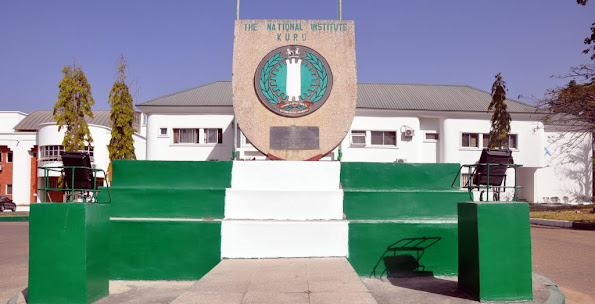Five Factors Limiting Small Business Operations
 In a study conducted in 2011, we found five main factors
limiting small business operations in Nigeria. Although previous studies have
been carried out on this issue in the past, our own study (which I conducted with
a colleague, Wumi Siyanbola) sought to adopt an exploratory approach; thus, giving
us the opportunity to spend time with a number of small business owners, and we
simply allowed them to tell their own stories. In this piece, my intension is
to detach myself from my academic mind-set, and present these factors in a way that
anyone can understand.
In a study conducted in 2011, we found five main factors
limiting small business operations in Nigeria. Although previous studies have
been carried out on this issue in the past, our own study (which I conducted with
a colleague, Wumi Siyanbola) sought to adopt an exploratory approach; thus, giving
us the opportunity to spend time with a number of small business owners, and we
simply allowed them to tell their own stories. In this piece, my intension is
to detach myself from my academic mind-set, and present these factors in a way that
anyone can understand.
1. Insufficient Funding and Poor Access to Finance
Most of the small business owners (SBOs) identified the lack
of finance as their main operational limitation. In their opinion, they would
like to grow their businesses and take them to the next level, but their dreams
are cut short by the lack of funds. The result also showed that many SBOs are
upset at commercial banks, and view them as enemies of progress, because most banks
do not like lending them money. When asked about the existence of Micro Finance
Banks (MFBs) and Venture Capital (VC) companies, the SBOs described MFBs at
simply an extension of the typical commercial banking approach i.e. they are
more interested in collecting their monies, as deposits, and less interested in
offering them any credit assistance. On the part of VCs, SBOs view them with suspicion,
as people who want to take-over their businesses (their “babies”, which they
have spent time nurturing). The VCs usually ask for very high equity percentage,
beyond what the SBOs are willing to offer, and also come up with unfavourable terms
for the investments.
2. High Cost of Doing Business
The cost of doing business in Nigeria is high, and this
necessitated the country’s poor ranking in the World Investment climate survey
conducted by World Bank. The SBOs complained that in conducting their business
activities, they have to bear every expense on their own. Sadly, it is not every
cost that small businesses can pass-on to their customers, because if do, their
product/service offering may become too expensive and no longer competitive. One
SBO explained that every small business is a local government on its own,
because we provide our own power, water, security, and means of communication
and transport, amongst others; coupled with the constantly increasing cost of
raw materials and inputs. There isn’t any social support for small businesses
whatsoever.
3. Inadequate Infrastructure
This factor is very much linked to the high cost of doing business.
Infrastructural inadequacy is a critical limiting factor to the smooth
operations of small businesses. Imagine you are a business man/woman living in Lagos, where
there is very limited electricity supply, poor roads, with an ineffective
transport system, and slow internet connectivity; and you want to compete with the SBO in China, India, UK or
US? You must be joking! What of the amount of man-hours lost in traffic gridlocks due to the poor
state of roads? Interestingly, to explain the dreadful state of roads, one ex-law
maker (Hon. Patrick Obahiagbon, aka Igodomigodo) described the process of travelling
through the Lagos-Ibadan expressway, one of the country’s major trade routes,
as engaging in a Makaba dance. Those man-hours
lost due to bad roads and traffic gridlocks could have been channelled into
more productive use.
4. Multiple Taxation and Corruption
From the results, all the SBOs interviewed complained
seriously about the problem of multiple taxation and its negative impact on their
bottom-line. Small businesses are made to pay all manner of fees, levies and
taxes to agents of various levels of government. These range from shop permits,
business licences and tenement rates, to radio/tv licences, ground fees, quality
certificates, and security levy to local vigilante groups to mention a few.
This strangulating situation is further worsened by corruption. For instance,
for businesses to move their raw materials to site, they would have to make several
stops along the road, and forced to give out
money to all manner of “characters” – from uniformed security personnel
and vehicle inspection officers, to state and local government officials,
traffic wardens, transport associations and “area boys”(Omo onile). How do you expect
small businesses to survive? They barely struggle to breakeven, talk more of making profit.
5. Inconsistent Economic Policies
Since 1960 to date, every administration has come up with
one policy or the other targeted at promoting the development of the MSME (micro,
small, and medium enterprises) sector in Nigeria. Sadly, these policies have
been seriously marred by ineffective implementation. As a matter of fact, there have been instances when it appeared that government
really meant well for the sector; yet, the same lack of, or limited nature of, implementation
of such policies still hindered MSMEs from benefitting from such schemes. Worse
still, is the fact that when a new administration takes over power, most of the
policies of the past administration are set aside, and new policies are
introduced. Yet, it remains business-as-usual as the new policies may still be faced with the same problems of poor
implementation. For instance, on the issue of government always announcing that large amounts of money have been set aside to support the growth of the sector, one SBO angriliy expressed his opinion, stating that: “we keep hearing about funds being set aside to
boost the SMEs sector, but I have never benefitted, and do not know any of my colleagues
who have benefitted. It all ends on the Tele, we dont get to see anything. Infact government is one of the greatest enemies of small businesses, because we get no support from them whatsoever.”
Recommendation
In conclusion, it is
worth noting that a comprehensive article on the points discussed above has
been sent to an academic journal. To summarise our recommendations in that
article, there is germane need for a National MSME Sector Summit that would
bring all the stakeholders together to discuss and brainstorm over the
challenges facing the sector in Nigeria. The challenge, however, is the dearth
of information. There hasn’t been a major baseline study covering the entire
MSME sector for many years now. Possibly, this should be the starting point. We
all need to be well informed about what is happening in the sector, from a very
scientific perspective. The question now becomes who would fund a detailed
baseline study for the sector? I suggest the Ministry of Trade and Investment
should take the lead!!!
Please feel free to
leave your comments and feedback.



detailed, insightful and understandable write up.
ReplyDeleteAs someone that has tried to improve a family business i can easily relate to the following points made above.
Let us for one second forget about improving an already existing small business,how about people that wants to start a total new small business its even more difficult. Is it that the government is not aware that small businesses are the hub of an economy grown or still growing economy it is totally frustrating , absurd and despicable. Neverthless, a well thought write up , just hope the people in charge will take on board some of the points made and turn it into a panacea of the issues facing the small business sectors